If Murder Were Legal
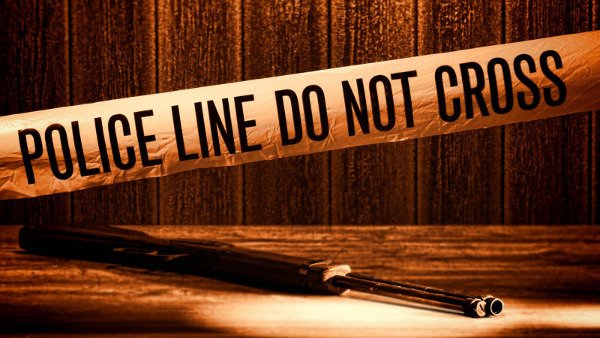
True believers in the deity known as “government” often make random, arbitrary, dire predictions about what would happen in the absence of a political ruling class. This is almost always driven by the fear of the unknown, rather than being driven by an objective consideration of human nature.
Consider the following thought experiment as an example: Suppose that tomorrow, the federal and all of the state legislatures in the U.S. repealed all laws against homicide—what would actually happen if murder were “legalized”? (For this discussion, we’ll ignore the fact that a lot of murder is already supposedly “legal,” when it is committed in the name of “law enforcement” and “national defense.”)
It would be easy for people to imagine nationwide pandemonium and chaos, the streets running red with blood—“The Purge”! After all, if people were “allowed” to commit murder…
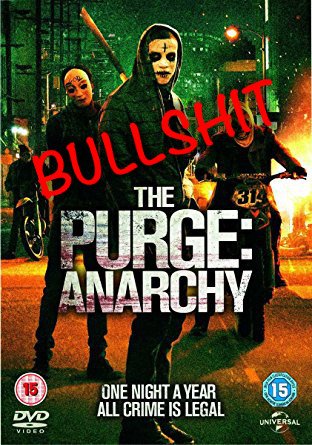
And right there is the error. Changing political decrees actually does very little to change the reality of the situation. For example, many thousands of Americans commit murder every year, even though the politicians have decreed that they are not “allowed” to do such a thing. In reality, by definition they are allowed to do such things, as evidence by the fact that they actually do them.
All “the law” does is threaten to send “law enforcers” after anyone caught committing murder. Obviously that doesn’t prevent all murder from happening. Legislation merely imposes a potential adverse consequence to those who choose to commit murder (if they get caught).
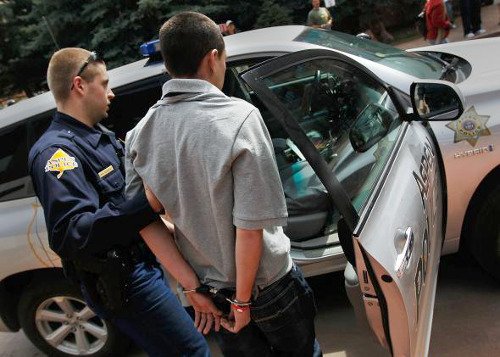
And this is where statists make their biggest blunder: assuming that if there were no “legislative” disincentive to committing murder, then there would be no disincentive at all—assuming that if politicians did not forbid it, then no one else would try to stop it either. Such an assumption is ridiculous, as it implies that without decrees from a ruling class, no one would ever try to protect themselves or each other from homicidal maniacs.
So what would actually happen if tomorrow all murder were “legalized” in the United States?
1 - A lot of decent people would be scared, expecting the worst, and—ironically enough—might immediately become better armed and better prepared to defend themselves from the impending slaughter that they imagine would happen, thus creating more of a deterrent to murder than exists now. (Even most cops will admit that they almost never stop a murder while it’s happening; they only get involved after the victim is dead. So those who today expect “the law” to protect them from murderers are very misguided.)
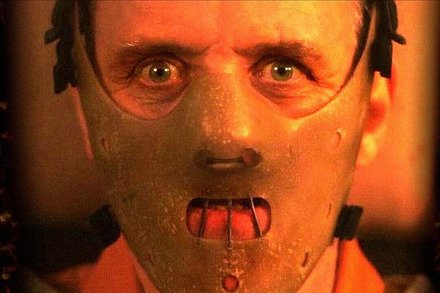
2 - A few nasty or imbalanced people would probably make the same mistake, assuming that they could then easily get away with being violent psychos. However, due to item #1, the life expectancy for such would-be murderers would likely be very short. Because, as it happens, most people don’t want to be murdered, regardless of what the politician scribbles (“laws”) have to say on the matter.
3 - It is likely that a number of truly nasty people—especially nasty people who have used so-called “authority” to victimize others—would probably be killed. There are a lot of abusers and tyrants who now use “law” as a shield against retribution from their victims. Whether you or I would morally approve of it, it is likely that the number of cops, politicians and tax collectors would drop rather dramatically that day.
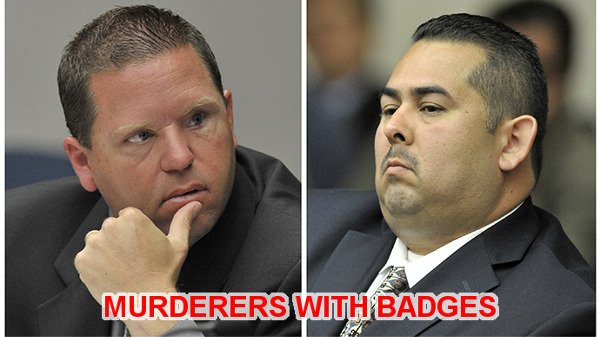
4 - Normal, decent people—the kind who don’t want to be murdered, and who don’t want to murder others—would quickly put together organized efforts to prevent murder, or at least to find and capture murders after the fact in order to protect their future potential victims. And, as is usually the case when normal people decide to take responsibility and do things for themselves, their efforts would almost certainly be more efficient, more effective, and more moral than “government” protection has ever been.
5 - But perhaps the most significant change, at least in the long run, wouldn’t even be about pre-meditated, unjustified murder. It would be about resistance to tyranny. As most of my readers already understand, every “law” is a command or demand backed by a threat of deadly force. And many people comply with unjust “laws,” simply because they know what would happen if they got caught disobeying. But if there were no longer a “law” against killing people, many potential victims of state aggression might decide to finally fight back. Very quickly it would become extremely dangerous to be an enforcer of “laws” that try to punish people for victimless “crimes.”
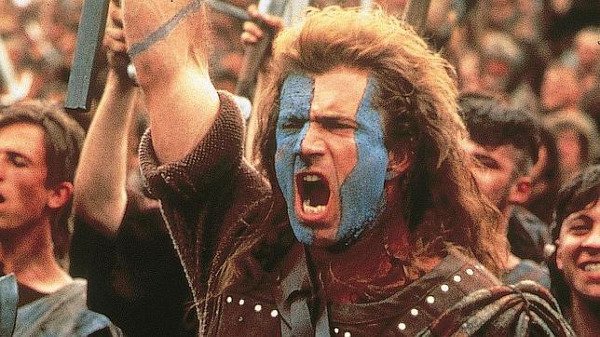
Of course, if the badge-wearers could also get away with murder without any repercussions …. oh, wait. They already do. Never mind. However, if their intended victims no longer feared prosecution if they used deadly defensive force against aggressors with badges, then there would finally be an actual deterrent to cops committing murder—a deterrent which has nothing to do with legislation.
Oddly enough, that means that if tomorrow all “laws” against killing were repealed, yes, there would probably be a short-term spike in violence and murder (some completely unjustified, some probably targeting very nasty people), which would then die down fairly quickly as average people, both individually and collectively, took responsibility for their own safety and defense. After that, murder and aggression—especially murder and aggression committed by agents of the state—would probably drop dramatically.

Thanks for another great post Larken. I love the way you break things down.
People make the mistake of thinking that human beings are naturally evil and without some set of agreed upon rules we would all run around being horrible to each other. People know the difference between right and wrong by knowing whether they would want something done to themselves. When you hurt someone and they cry it makes you feel bad (unless you're a psychopath). You know you wouldn't want something done to you that would make you cry.
That feeling in the pit of your stomach when you know you are doing something wrong is inside all of us. I don't believe that it is a product of government or religion or even the teaching of parents.
I heard it suggested that the terrible feeling when you do something wrong and the good feeling when you do something right is actually God inside of us. I don't know if that's true but it is one of the best descriptions I've heard of how a God would work through us without interfering with our free will. I'm not a religious person really but even I can believe in that.
Religion aside, we aren't all as horrible as they make us out to be. The majority of people I meet are for the most part good people.
This actually made me laugh! But I do agree with you! Things would be a lot different if people in power, with badges or protected by people with badges, knew those they're trying to screw are now free to come after them.
Also, if making murder legal might raise some eyebrows, even a beat-the-shit-out-of-anyone-with-no-consquences law would be useful!
I have been presented with a similar scenario before. I think the best thing that would happen is that we, even the worst of us, would start respecting each others much more. And this would happen very quickly. I won't want to test how far to push anyone with that capability too often. The best equalizer. Thank you Larken, Uv & Rs. PS, I hope you had a good time in Mexico.
This was really well put.
Break it down for them Larken! Yup yup yup!!!
Totally, absolutely, unequivocally and 100 percent agree!!! It will never happen, but nice to think about. The changes in the actions of people would be dramatic.
"And this is where statists make their biggest blunder: assuming that if there were no “legislative” disincentive to committing murder, then there would be no disincentive at all—assuming that if politicians did not forbid it, then no one else would try to stop it either. Such an assumption is ridiculous, as it implies that without decrees from a ruling class, no one would ever try to protect themselves or each other from homicidal maniacs."
I agree. This is simply a call for self-responsibility.
"When you select an authority to help you improve yourself, it's like hiring the police, out of your tax money, and putting them in charge of seeing that you obey the law. I mean, can't you take of yourselves? Is this the land of the free and home of the brave, or isn't it?" - Alan Watts
Thanks, Larken!
capture murders
Interesting speculation that helps us question the assumptions most people take for granted.
Spot on, Larken. There are plenty of powerful disincentives for murder outside of legislation. Like the fact that murdering people causes major psychological damage to the murderer. Or that you will be a target for defensive killing. Or that no one will like you anymore.
I do think that people who probably deserve to be murdered would prepare even more quickly and thoroughly for the new "lawlessness" than ordinary people would. Some of those folks have lots of money and resources at their disposal, so it would be interesting to see how that played out.
By the way, I didn't get to catch up with you at Anarchapulco, so just wanted to say that I enjoyed your talk, but especially loved your border debate with Lauren Southern, in which you kicked metaphorical ass. Keep up the good work!